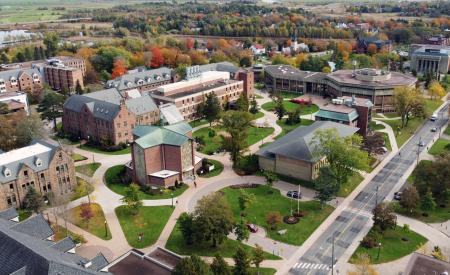Mount Allison has a responsibility to minimize the environmental impact of the University’s operations.
This is an ongoing effort — the University is continually seeking ways to support climate-neutrality across all aspects of our operations.
On Feb. 8, 2022 President Jean-Paul Boudreau made a public statement on climate change initiatives at Mount Allison.
Carbon footprint
Over the past decade, the University has reduced its carbon footprint by 20 per cent.
Reporting began in 2010 and by 2020 there had been a 20 per cent drop in carbon emissions. There was a further 13 per cent reduction in 2021, however that reduction is mainly due to the reduction in many activities due to COVID-19 and is expected to be temporary.
The carbon footprint for the year ending April 30, 2021 is 9,107 metric tonnes. (This does not include commuting.) The main sources of emissions are heating and power.
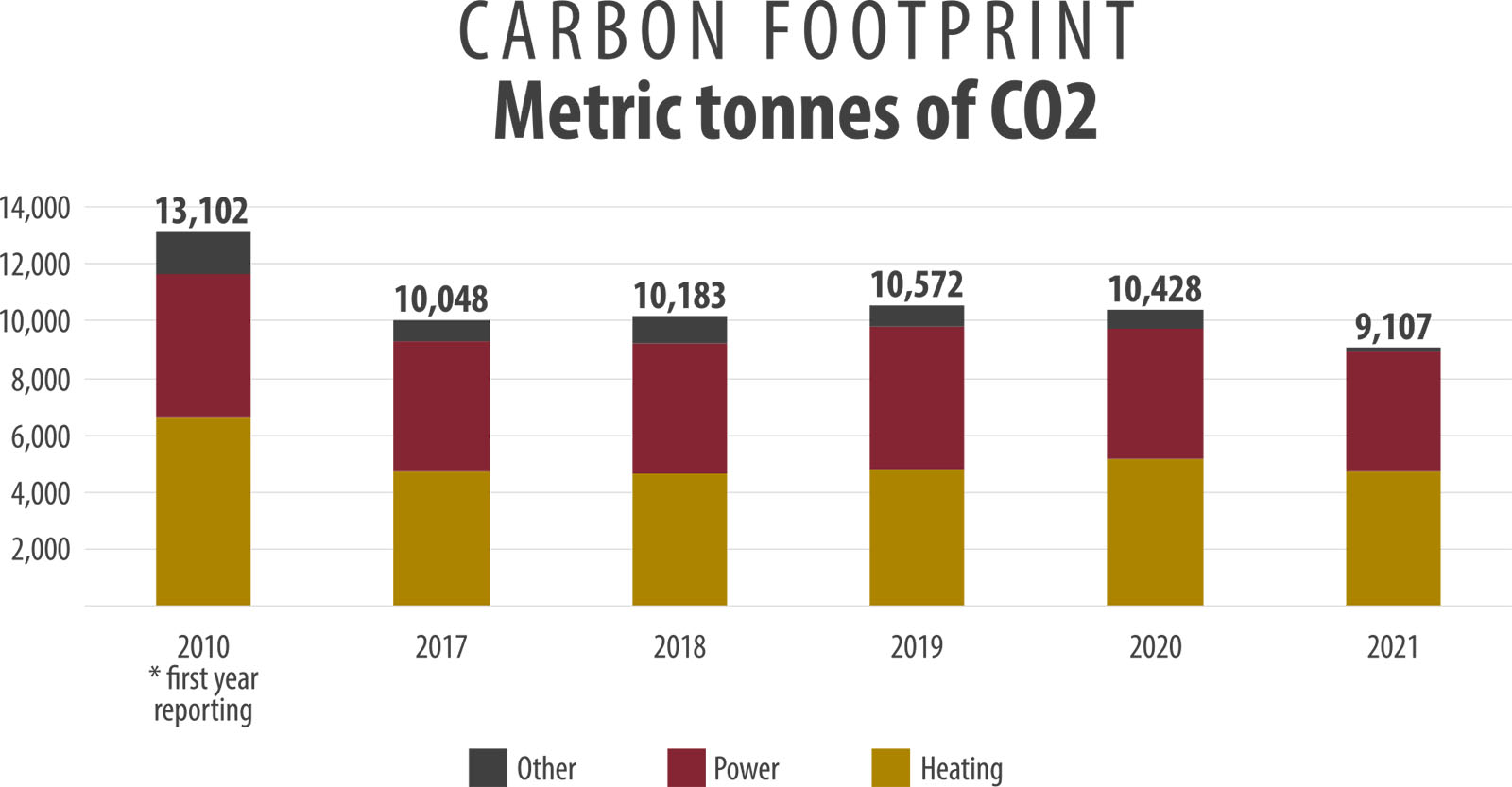
Find out more
- The carbon footprint is publicly reported in the University’s Annual Financial Report.
- The University’s Emission Reduction Policy outlines steps the University will take to reduce its carbon footprint.
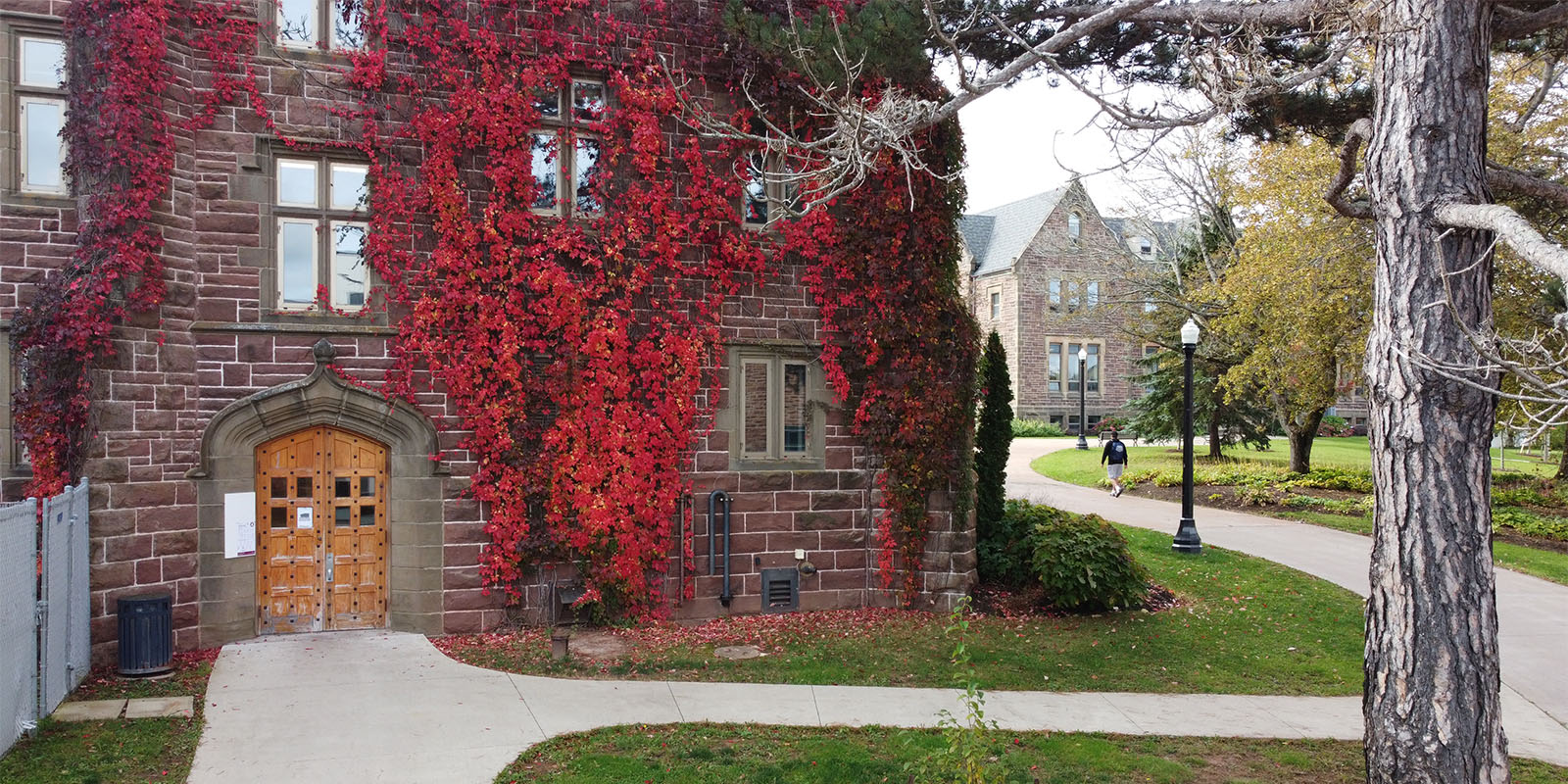
Net-zero tool kit
Mount Allison is part of a national initiative to put together a tool kit for universities to use in developing net-zero plans for their campuses.
Led by the Canadian Association of University Business Officers, the project should see the tool kit available beginning in 2022 to support universities across the country.
Net-zero is the point at which the amount of greenhouse gases moving into the atmosphere is balanced by the amount of greenhouse gases being removed from the atmosphere. This can be achieved by reducing the amount of greenhouse gas emitted, by offsetting emissions, or a combination of the two. Many countries around the world, including Canada, have committed to reaching net zero by 2050 at the very latest. Reaching net zero is a key goal in the shift to a decarbonized economy.
Investments
UNIE
Mount Allison is a founding member of the University Network for Investor Engagement (UNIE).
UNIE leverages members' investments to engage with companies to accelerate the transition to a low-carbon economy. It focuses on engagement and advocacy in key sectors, including energy, utilities, finance, transportation, and manufacturing.
Find out more

UNPRI
Mount Allison became an asset owner signatory to the United Nations Principles for Responsible Investment (UNPRI) in 2018.
The UNPRI provides a framework for reporting on and developing responsible investment activities. Most investment management firms Mount Allison works with are signatories to the UNPRI.
Find out more
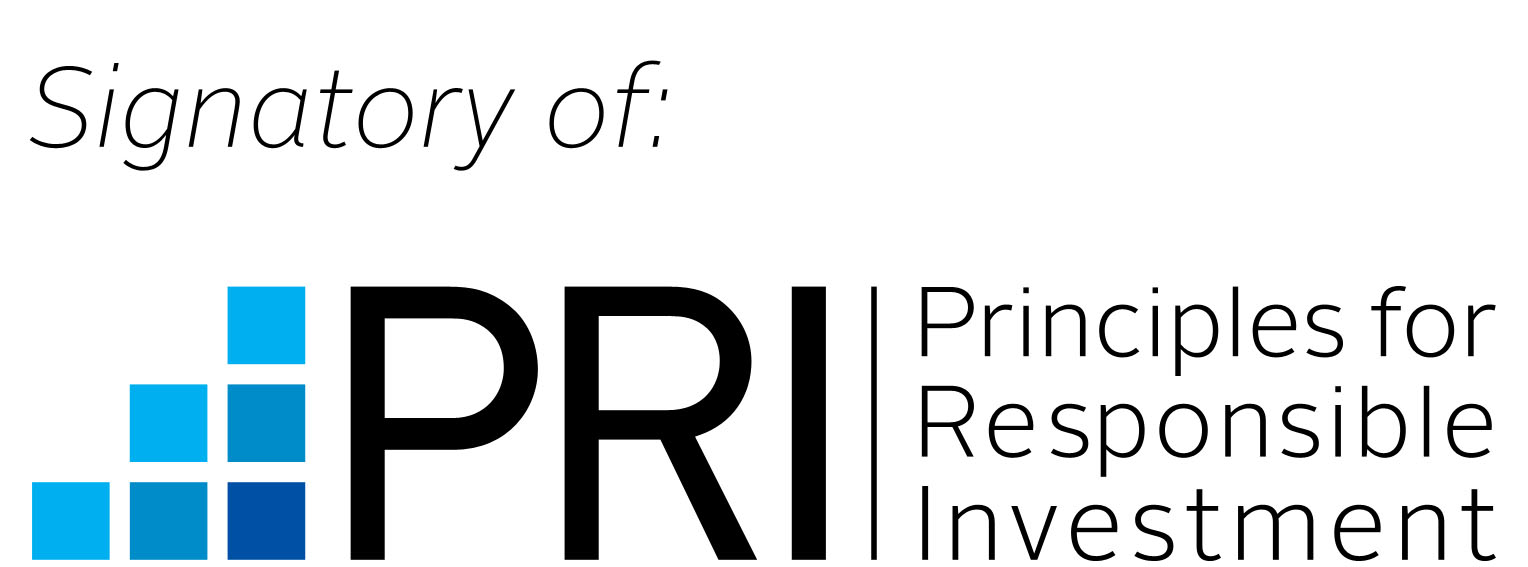
Responsible investing
Mount Allison’s investment philosophy emphasizes responsible investment strategies based on environmental, sustainability, and corporate governance (ESG) factors.
The University’s endowment fund represents the bulk of the University’s investments. Funding for scholarships, bursaries, departmental support, and other campus activities come from the interest earned on the endowment. In 2020-21, the endowment fund contributed $8.8 million to University activities.
The endowment is invested in funds that are comprised of stocks of many companies from a range of sectors — much like mutual funds that many individuals invest in — and the composition of stocks in funds changes frequently. The University produces an annual endowment fund holdings report that provides a snapshot of the underlying holdings.
Find out more
ESG Target Fund
Investment fund for donors
The ESG Target Fund is an option for donors who wish to put new donations into a fund that excludes or limits certain sectors.
For more information contact:
development@mta.ca
Green Globes certification
Building efficiency and sustainability
All new construction and facilities upgrades on campus aim to follow Green Globes building certification, which set standards for green building design, operation, and management to create buildings that are more energy efficient and sustainable.
Windsor Hall is the most recent campus building to undergo a major renovation. It received a four Green Globes rating for features like:
- full insulation
- LED lighting and motion sensors
- low-flow water fixtures
- efficient heating and heat recovery systems
- furniture made from recycled materials
Find out more
- full list of completed and upcoming projects
- Buildings Policy section of the Environmental Policy
- Green Globes website
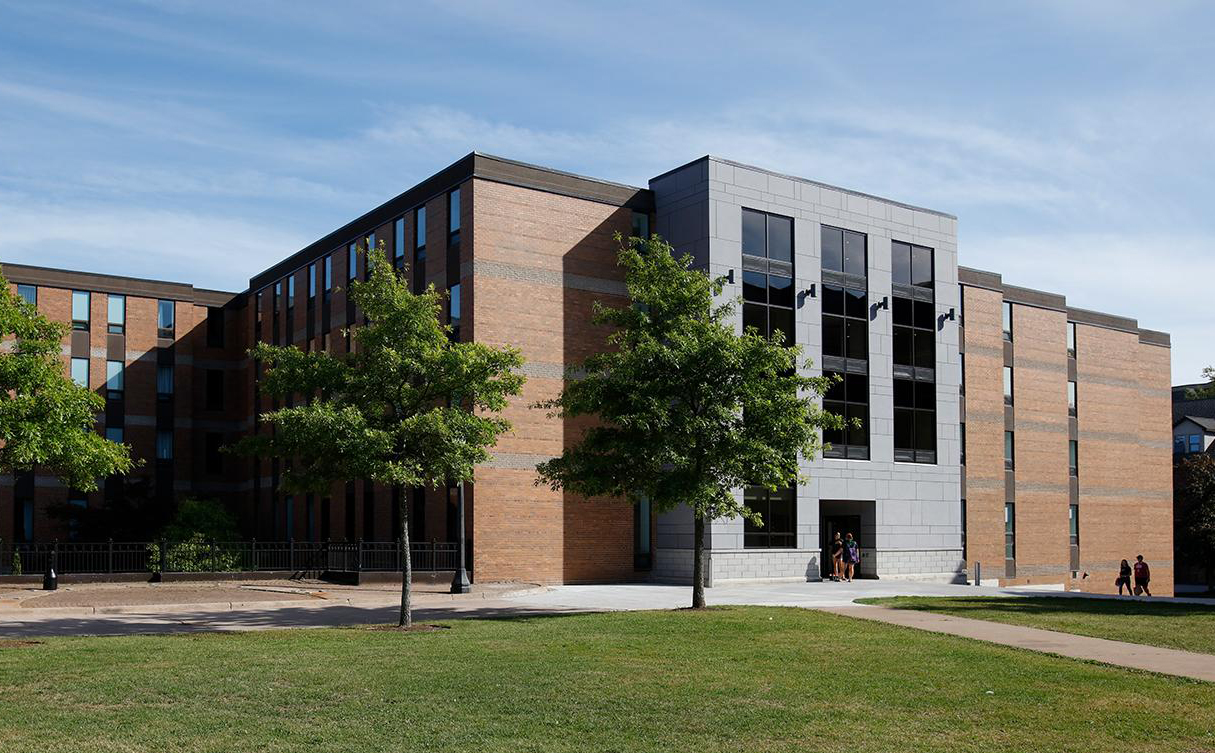
Heating and power
Heating and power are Mount Allison’s largest sources of carbon emissions.
The University has made it a priority to decrease emissions from heat generation and electricity. Some of the key projects to date include:
- making energy efficiency measures a part of new construction and major renovation projects
- retrofitting buildings with energy efficient LED lighting and motion sensor technology
- upgrades and repairs to steam tunnels to reduce energy loss during heat transfer
- upgrades to heating plant
- addition of heat recovery systems
The University is also continually reviewing its fuel sources and exploring lower emission and alternative energy sources.
A campus-wide energy metering system is currently being installed in order to measure steam, water, and power use by building. In addition to supporting efforts to reduce energy use, metering also helps identify problems with mechanical systems so they are caught and remedied as quickly as possible.
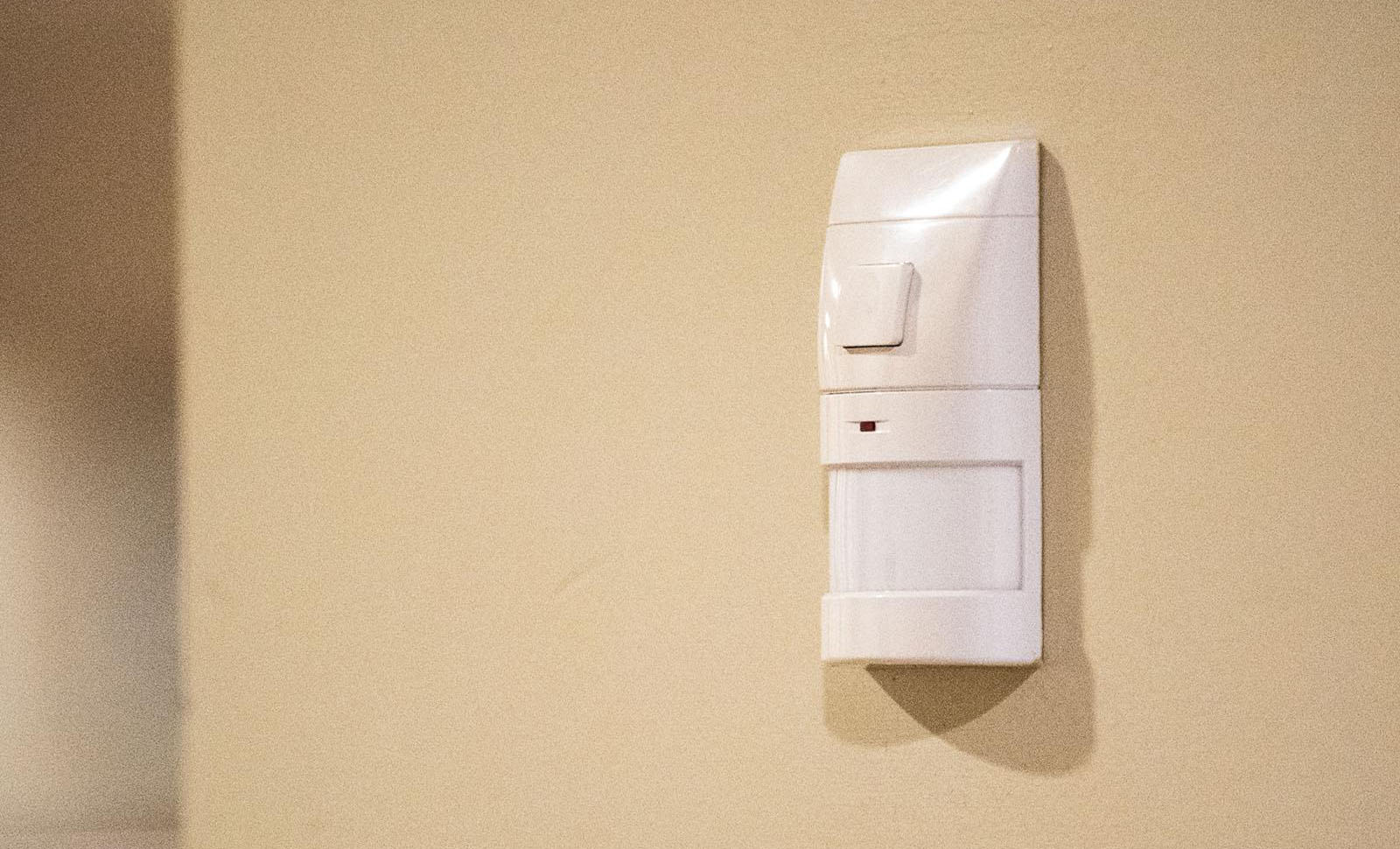
Transportation
Mount Allison has made a concerted effort to “green” its fleet of vehicles over the past number of years.
This has included:
- switching from fossil-fueled trucks to electric utility vehicles equipped with solar panel charging systems
- reducing the number of University-owned vehicles
- right-sizing grounds vehicles to eliminate unnecessary large vehicles (i.e. switching from a truck to a golf cart when possible)
It is also important to monitor University-approved travel to reduce our impact. Mount Allison currently tracks all University-approved travel, noting distance and mode of transportation in order to calculate our carbon footprint related to travel.
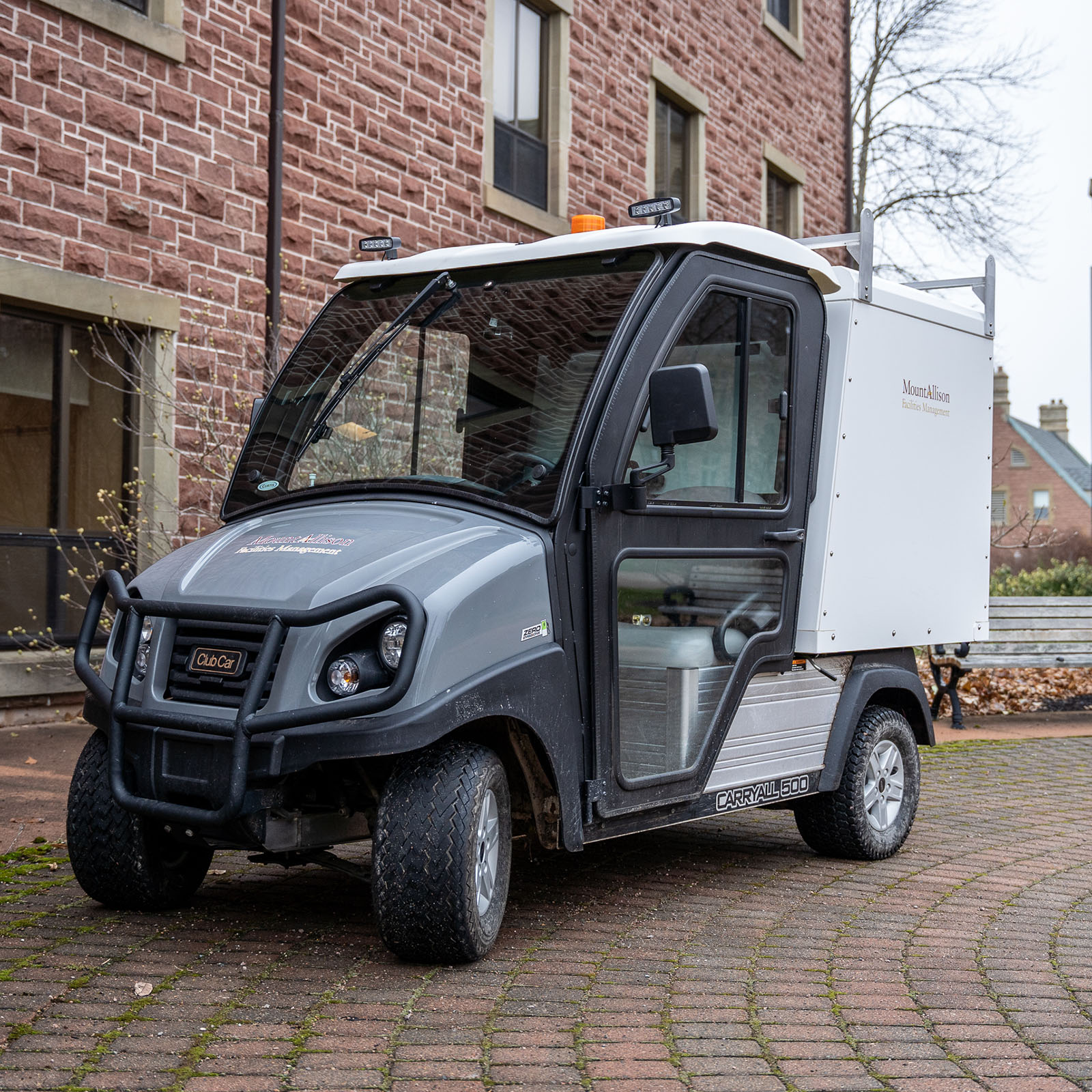
Grounds
Mount Allison’s 72-acre campus includes extensive green space.
Grounds maintenance practices aim to cause the least environmental impact possible, while using landscaping and plantings to support water conservation, natural heating and cooling for buildings, erosion protection, and more.
- local plants are used wherever possible and plants invasive to New Brunswick are avoided
- every effort is made to protect trees from damage and disease; three trees are planted for every tree that must be removed
- the use of salt and salt alternatives is continually evaluated to ensure the least amount possible is being used, while maintaining pedestrian safety
Find out more
- Grounds Policy section of the Environmental Policy
- Mount Allison's first green roof project
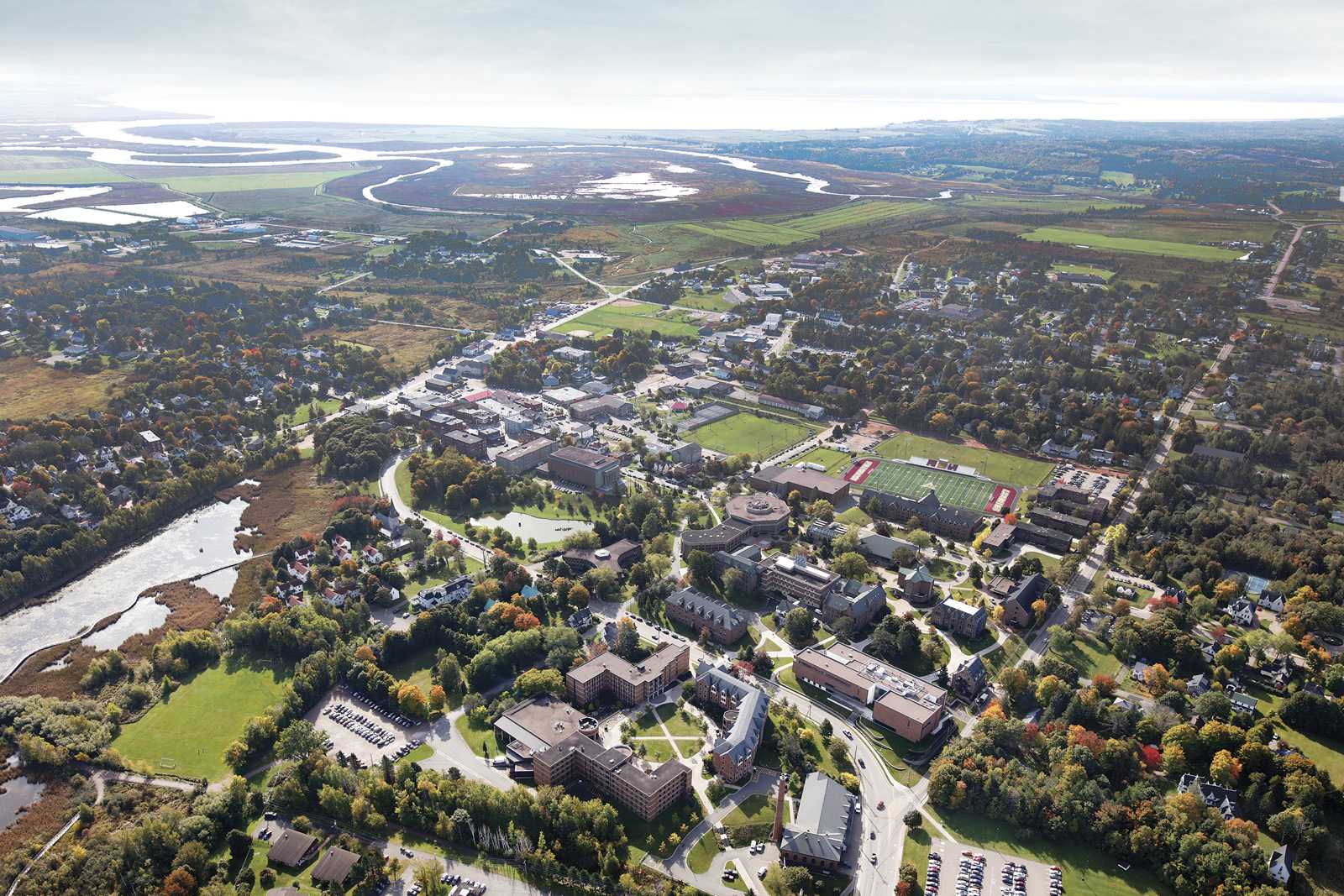
Environmental audits
Environmental audits are conducted on campus every two to three years.
They review performance indicators outlined in the University’s Environmental and Emission Reduction policies.
All audits from 1998 onward are available in the Environmental responsibility section on the Reports and accountability page.

Dining Services
Mount Allison’s dining operations are committed to using local food and reducing waste in order to limit environmental impact.
Some of the steps taken to date include:
- 40 per cent of food served comes from New Brunswick, PEI, and Nova Scotia
- trayless dining and a scraping station has reduced waste by 44 per cent
- efficient dishwasher installed that uses 50 per cent less water
- all food waste is composted
Find out more
- full list of steps taken to reduce environmental impact in campus dining
- Food Policy section of the Environmental Policy

Waste, water, and paper
Mount Allison’s Environmental Policy includes a commitment to reductions in waste, water consumption, and paper usage.
This includes:
- ensuring water conservation in buildings, for example through low-flow fixtures and the use of rainwater
- reducing waste and re-using or recycling items where possible
- reducing overall paper consumption
Find out more
- Waste Policy, Water Policy, and Paper Policy sections of the Environmental Policy





